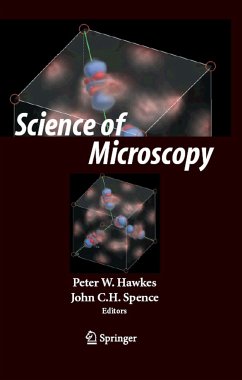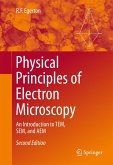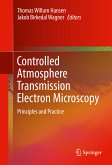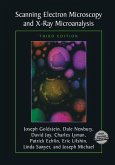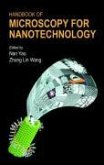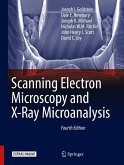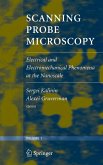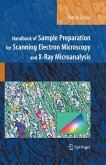Dieser Download kann aus rechtlichen Gründen nur mit Rechnungsadresse in A, B, BG, CY, CZ, D, DK, EW, E, FIN, F, GR, HR, H, IRL, I, LT, L, LR, M, NL, PL, P, R, S, SLO, SK ausgeliefert werden.
In Science of Microscopy, comprehensive reviews set these innovations in the context of microscopy today. Each contribution presents a form of microscopy or occasionally a microscopic technique, and provides information about the instruments involved and their areas of application. The contributions are written in such a way that the reader can understand how the various instruments function, their strengths and weaknesses, and whether they are suitable for a particular scientific investigation. Science of Microscopy will be an indispensible guide to both a wide range of scientists in university laboratories and to engineers and scientists in industrial R&D departments.
"The Science of Microscopy presents 20 essays (in 2 volumes) covering topics within modern microscopy contributed by national and international experts. ... Many of the essays contain a valuable section entitled 'Relevance to Humans', that talks about data pertinent to human applications. ... The encyclopedia is highly recommended for science collections in large public, community college, and academic libraries." (Laura J. Bender, ARBA online, March, 2007)
"The editors of Science of Microscopy are notable authors and researchers in the areas of physics, optics, and electron microscopy. Hawkes and Spence are fully qualified to present this set (each editor also contributes an essay), which will be a valuable addition to academic libraries serving upper-level undergraduates and graduate students who need to learn various microscopic techniques." (Caroline L. Gilson, ARBA online, Vol. 39, 2008)
"This is an excellent book on the subject of modern microscopies. ... Numerous detailed applications are given to guide the readers decision which instrument or technique seems to be best suited for retrieving information. ... the book is aimed at institutions such as research groups and libraries. ... could be a valuable source ofknowledge for both individual researchers and doctoral students." (Dr. Thomas Matzelle, Imaging and Microscopy, Vol. 10 (2), 2008)

